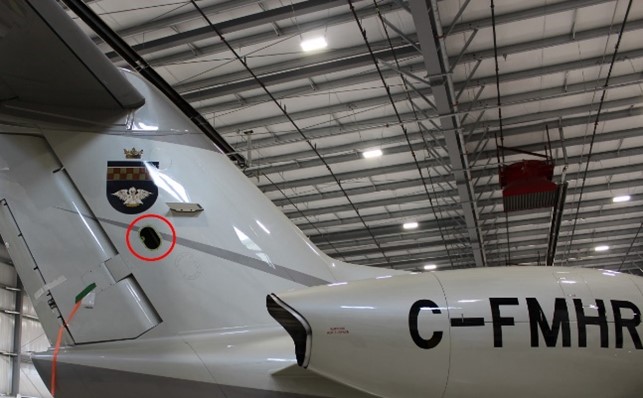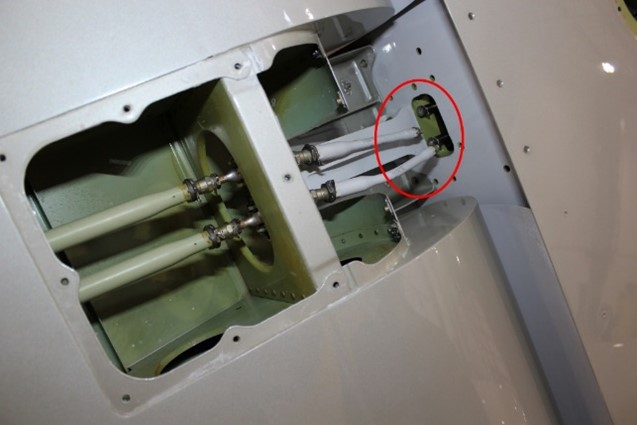Loss of rudder control
Mark Anthony Group Inc.
Pilatus PC-24, C-FMHR
Kelowna, British Columbia
The occurrence
On 03 November 2023, a privately operated Pilatus PC-24 aircraft registered to Mark Anthony Group Inc. was conducting a flight from Vancouver International Airport, British Columbia (BC), to Kelowna Airport, BC. Prior to cruising altitude, the crew notified NAV CANADA’s Vancouver Control Centre of a flight control problem. They declared an emergency and requested aircraft rescue and firefighting services to be on standby at Kelowna Airport. The aircraft landed without incident.
Maintenance conducted an initial inspection and determined that the rudder mass balance weight arm had broken, preventing full movement of the rudder. Further inspection found that the rudder trim tab control rods had become separated from the rudder trim actuator. The TSB is investigating.
Media materials
Deployment notice
TSB to deploy a team of investigators following an aircraft incident in Kelowna, British Columbia
Richmond, British Columbia, 07 November 2023 — The Transportation Safety Board of Canada (TSB) will deploy a team of investigators to the Kelowna International Airport, British Columbia, to investigate a loss of control and declared emergency involving a privately operated Pilatus PC-24 aircraft, which occurred on 03 November 2023. The TSB will gather information and assess the occurrence.
Investigation information
Download high-resolution photos from the TSB Flickr page.
Class of investigation
This is a class 3 investigation. These investigations analyze a small number of safety issues, and may result in recommendations. Class 3 investigations are generally completed within 450 days. For more information, see the Policy on Occurrence Classification.
TSB investigation process
There are 3 phases to a TSB investigation
- Field phase: a team of investigators examines the occurrence site and wreckage, interviews witnesses and collects pertinent information.
- Examination and analysis phase: the TSB reviews pertinent records, tests components of the wreckage in the lab, determines the sequence of events and identifies safety deficiencies. When safety deficiencies are suspected or confirmed, the TSB advises the appropriate authority without waiting until publication of the final report.
- Report phase: a confidential draft report is approved by the Board and sent to persons and corporations who are directly concerned by the report. They then have the opportunity to dispute or correct information they believe to be incorrect. The Board considers all representations before approving the final report, which is subsequently released to the public.
For more information, see our Investigation process page.
The TSB is an independent agency that investigates air, marine, pipeline, and rail transportation occurrences. Its sole aim is the advancement of transportation safety. It is not the function of the Board to assign fault or determine civil or criminal liability.


